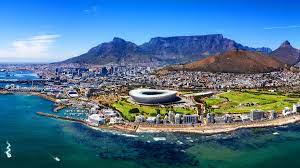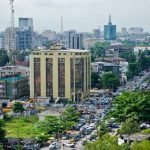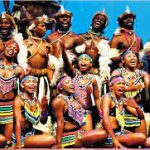South African Cultures: A Journey Through Diversity and Resilience
Exploring the rich tapestry of South African culture requires a journey through history, tradition, diversity, and resilience. From the indigenous peoples who have inhabited the land for millennia to the waves of colonization and migration that have shaped its contemporary identity, South Africa is a mosaic of cultures, languages, and customs. In this comprehensive exploration, we will delve into the various facets of South African culture, including its indigenous heritage, colonial influences, post-apartheid transformation, and ongoing efforts to reconcile its diverse identities.
Introduction: A Land of Diversity
South Africa, located at the southern tip of the African continent, is renowned for its cultural diversity, often referred to as the “Rainbow Nation.” This diversity is rooted in the country’s complex history of colonization, slavery, and apartheid, which have shaped its multicultural society. South Africa is home to a multitude of ethnic groups, languages, religions, and traditions, each contributing to the vibrant tapestry of its cultural landscape.
Indigenous Cultures: The First Inhabitants
Before the arrival of European colonizers, South Africa was inhabited by various indigenous peoples, each with its own distinct culture and way of life. The San and Khoikhoi peoples, often referred to collectively as the Khoisan, are believed to be the earliest inhabitants of the region, dating back tens of thousands of years. The San were hunter-gatherers who lived in small, mobile groups, while the Khoikhoi were pastoralists who herded cattle and sheep.
The arrival of Bantu-speaking peoples from Central and East Africa around 2,000 years ago brought new languages, agricultural techniques, and social structures to the region. These Bantu-speaking groups, including the Zulu, Xhosa, Sotho, and Tswana, established powerful kingdoms and chiefdoms, such as the Zulu Kingdom of Shaka and the Xhosa Kingdom of Hintsa. Each group had its own cultural traditions, including oral literature, music, dance, and spiritual beliefs.
Colonialism and Its Legacy
The colonization of South Africa by European powers, primarily the Dutch and the British, had a profound impact on the country’s culture and society. The Dutch East India Company established a trading post at the Cape of Good Hope in the 17th century, laying the foundations for the colonization of the region by the Dutch settlers known as Boers, or Afrikaners. The Boers, along with British settlers and indigenous peoples, shaped the unique cultural hybrid known as Cape Coloured culture, characterized by a blend of African, European, and Asian influences.
The British Empire gained control of the Cape Colony in the early 19th century, leading to the Great Trek by Boer settlers into the interior of the country to escape British rule. This migration resulted in the establishment of the Boer republics of Transvaal and the Orange Free State, which later became part of the Union of South Africa.
Apartheid and Resistance
The 20th century saw the implementation of apartheid, a system of institutionalized racial segregation and discrimination, by the National Party government. Apartheid had a devastating impact on South African society, dividing people along racial lines and systematically oppressing the majority black population. However, resistance to apartheid also fostered a sense of unity and solidarity among South Africans, leading to the emergence of the anti-apartheid movement and the eventual dismantling of the apartheid regime.
The struggle against apartheid gave rise to iconic figures such as Nelson Mandela, Oliver Tambo, and Desmond Tutu, who became symbols of resistance and reconciliation. The cultural boycott of South Africa by the international community during the apartheid era also played a significant role in raising awareness of the injustices perpetrated by the apartheid regime and mobilizing support for the anti-apartheid cause.
Post-Apartheid Transformation
The end of apartheid in 1994 marked a new chapter in South Africa’s history, characterized by a commitment to democracy, equality, and reconciliation. The Truth and Reconciliation Commission (TRC), chaired by Archbishop Desmond Tutu, was established to investigate human rights abuses committed during the apartheid era and promote healing and reconciliation among South Africans. The TRC provided a platform for victims and perpetrators to share their stories and seek forgiveness, laying the groundwork for a more inclusive and equitable society.
The post-apartheid era also saw the emergence of a vibrant cultural scene in South Africa, characterized by artistic expression, multiculturalism, and a celebration of diversity. South African literature, music, film, and visual arts gained international recognition, with artists such as J.M. Coetzee, Miriam Makeba, Hugh Masekela, and Athol Fugard achieving global acclaim.
Cultural Diversity and Unity
Today, South Africa is a melting pot of cultures, languages, and traditions, reflecting its rich heritage and complex history. The country is home to 11 official languages, including isiZulu, isiXhosa, Afrikaans, English, and Sepedi, each representing a distinct cultural identity. Traditional ceremonies, rituals, and festivals are celebrated across the country, honoring the customs and beliefs of different ethnic groups.
South Africa’s cultural diversity is also evident in its cuisine, which reflects the influences of African, European, and Asian culinary traditions. Staple foods such as pap (maize porridge), braai (barbecue), bobotie (spiced minced meat), and samoosas (savoury pastries) are enjoyed by people of all backgrounds, bringing communities together around the dinner table.
Challenges and Opportunities
Despite its progress, South Africa continues to face challenges in promoting social cohesion, economic development, and cultural preservation. The legacy of apartheid, including persistent racial inequality, poverty, and unemployment, remains a significant obstacle to achieving the country’s full potential. Addressing these challenges requires ongoing efforts to promote inclusive governance, equitable access to education and healthcare, and economic empowerment for all South Africans.
At the same time, South Africa’s cultural diversity is a source of strength and resilience, offering opportunities for dialogue, creativity, and innovation. By embracing its multicultural heritage and fostering intercultural understanding, South Africa can harness the power of diversity to build a more inclusive and prosperous society.
Conclusion: Embracing Diversity
South Africa’s cultural heritage is a testament to its resilience and spirit of unity in diversity. From its indigenous roots to its multicultural present, South Africa’s culture reflects the rich tapestry of its history, traditions, and people. By celebrating its diversity, promoting social justice, and fostering reconciliation, South Africa can continue to build a more inclusive and vibrant society for future generations to enjoy.
OUR GALLER







